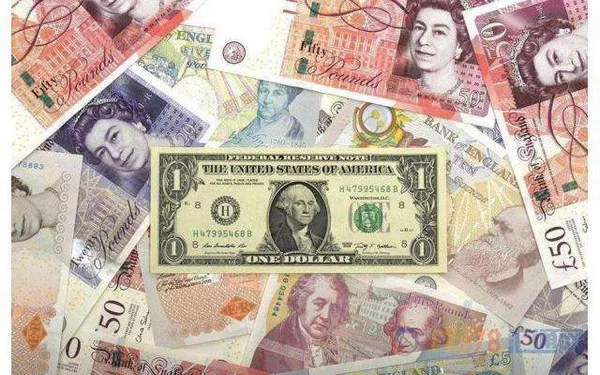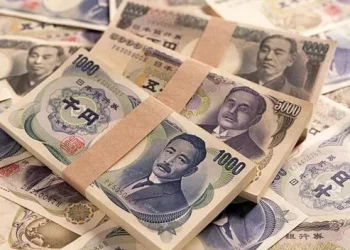In the dynamic world of international finance, staying abreast of currency exchange rates is crucial for businesses, investors, and travelers alike. One of the key pairs that draws significant attention is GBP to EUR. As of the latest data, the exchange rate between the British Pound (GBP) and the Euro (EUR) stands at 1 GBP to 1.15 EUR. In this article, we will delve into a comprehensive analysis of the current GBP to EUR exchange rate, exploring the factors influencing it and its implications on various sectors.
Understanding the Current Exchange Rate Landscape
The current GBP to EUR exchange rate reflects the relative value of the British Pound against the Euro in the foreign exchange market. Investors and financial institutions closely monitor this rate as it plays a pivotal role in international trade and investment decisions. The 1 GBP to 1.15 EUR rate indicates that one British Pound is equivalent to 1.15 Euros, providing a baseline for financial transactions between the United Kingdom and the Eurozone.
See Also: Current GBP Exchange Rate: Dynamics of Pounds to Euros
Historical Trends and Market Forces Influencing GBP to EUR
Analyzing historical trends is essential in understanding the current GBP to EUR exchange rate. Over the past year, the exchange rate has experienced fluctuations driven by various market forces. Economic indicators, political developments, and global events all contribute to the volatility of currency markets. For instance, the uncertainty surrounding the Brexit negotiations and the economic impact of the COVID-19 pandemic have been major influencers on the GBP to EUR rate.
Economic Indicators Impacting GBP to EUR
Economic indicators such as GDP growth, inflation rates, and employment figures play a significant role in determining the strength of a currency. In the context of GBP to EUR, economic data from both the United Kingdom and the Eurozone contribute to the exchange rate. A robust economy with positive indicators tends to strengthen a currency, potentially leading to an increase in the GBP to EUR rate.
Political Developments and Exchange Rate Fluctuations
Political events, especially those with implications for trade and economic policies, can exert considerable influence on exchange rates. The ongoing negotiations between the UK and the European Union, trade agreements, and geopolitical tensions can lead to fluctuations in the GBP to EUR rate. Investors closely monitor political developments to gauge potential impacts on the currency market.
Global Events and Safe-Haven Status
Global events, such as natural disasters, geopolitical crises, and pandemics, can influence the perception of currencies as safe-haven assets. The British Pound and the Euro are both considered major currencies with varying degrees of safe-haven status. During times of uncertainty, investors may flock to perceived safer currencies, affecting the GBP to EUR exchange rate.
Trade Balance and Currency Strength
The trade balance between the UK and the Eurozone also plays a crucial role in determining the GBP to EUR exchange rate. A trade surplus in favor of the UK may contribute to a stronger British Pound, leading to an increase in the exchange rate. Conversely, a trade deficit may weaken the Pound, resulting in a lower GBP to EUR rate.
Interest Rates and Yield Differentials
Central banks set interest rates, and the yield differentials between the Bank of England and the European Central Bank can impact the GBP to EUR exchange rate. Higher interest rates in the UK relative to the Eurozone may attract foreign capital, leading to an appreciation of the British Pound and an increase in the exchange rate.
Investor Sentiment and Speculation in GBP to EUR Trading
Market sentiment and speculative activities also contribute to exchange rate movements. Traders and investors assess various factors and make predictions about future currency movements. The collective actions of market participants based on their expectations can lead to short-term fluctuations in the GBP to EUR rate.
Impact on Businesses and International Trade
For businesses engaged in international trade between the UK and the Eurozone, the GBP to EUR exchange rate holds significant implications. A favorable exchange rate can enhance export competitiveness for UK businesses selling to Eurozone countries, while importers may face increased costs with a weaker Pound. Managing currency risk through hedging strategies becomes crucial in this dynamic environment.
Travel and Consumer Considerations
The exchange rate also has direct implications for travelers and consumers. Individuals planning trips from the UK to Eurozone countries will find their purchasing power affected by the GBP to EUR rate. Similarly, consumers purchasing goods or services from Eurozone businesses online will experience the impact of exchange rate fluctuations.
Conclusion: Navigating the GBP to EUR Landscape
In conclusion, the current GBP to EUR exchange rate of 1 GBP to 1.15 EUR reflects the ongoing dynamics in the global economy, politics, and financial markets. Investors, businesses, and individuals must remain vigilant and informed about the factors influencing this rate to make informed decisions. As we navigate through economic uncertainties and geopolitical developments, the GBP to EUR exchange rate will continue to be a focal point for financial analysis and strategic decision-making.
Related Topics:
Current GBP Exchange Rate: 1 Pound in Yen
Current GBP Exchange Rate: 15 Pounds in Australian Dollars
Current GBP Exchange Rate: 20 Pounds in Australian Dollars



























